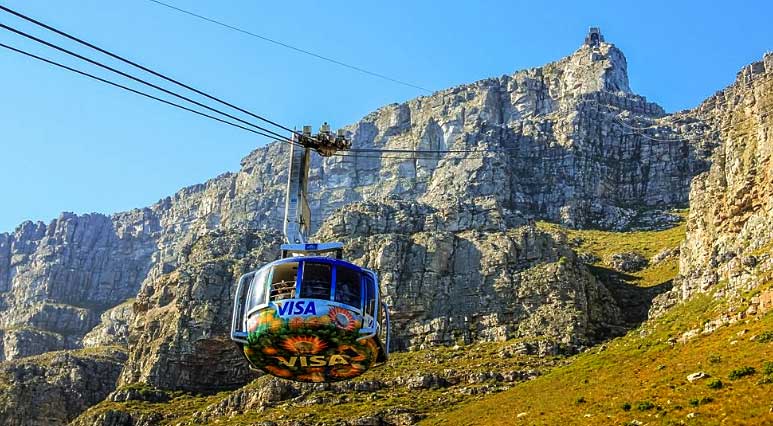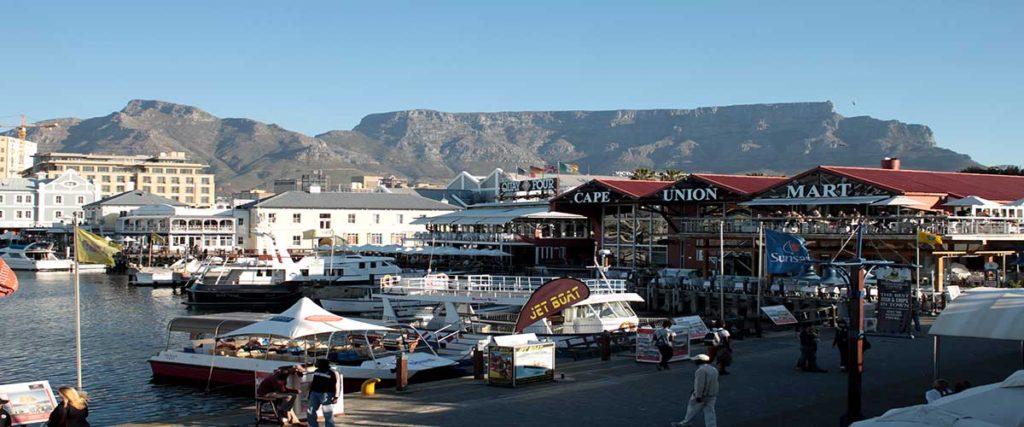Tips for Driving in South Africa
Tips for driving and getting around the rainbow nation of South Africa.
Here we give important information regarding the driving laws in South Africa and rules of the road including speed limits.
Tour the big beautiful country by rail, on a self drive or a coach tour. Visit the mother city of Cape Town, or Durban, South Africa’s holiday playground.
Climb a barrier of spears, visit historical and cultural sites. Whatever you do – happy travels.

Travel tips and information for travellers driving in South Africa
■ South Africans drive on the left-hand side of the road.
■ Seatbelts are compulsory and you may not talk on your mobile phone while driving.
■ All speed limits in South Africa are in kilometres per hour.
■ Generally, the speed limit for urban areas is 60km/h, on secondary roads it’s 100km/h and on national highways its 120km/h.
Always keep an eye out for the designated speed limit as these may vary depending on road conditions and law enforcement does take place next to the road.
■ You may use a valid driver’s licence issued in your own country as long as it has a photograph, the signature of the holder and is in English. Otherwise, it’s best to obtain an international driving licence before you leave home. Remember to always keep your driver’s licence with you when you are driving. This is very important as you will be asked to produce it if you are pulled over for any reason.
■ We always recommend that you keep your fuel tank topped up and to carry extra water in the event of a breakdown. Distances between towns can be quite long, especially along major roads crossing the interior of the country.
■ Another recommendation is to make sure your doors are locked when driving. If driving in remote areas, or driving through lower-income areas, or driving after dusk, it is advisable to have your windows rolled up (if you need air, roll them down a fraction, but not enough to get a hand through).
■ At intersections and traffic lights it’s advisable to keep an eye on your mirrors for opportunists creeping up on you to pinch bags (or cars!). If someone does try to take possessions or cars, the guidance is to give it to them without a struggle … remember that most crime in S.A. is violent and most criminals will have a weapon of some shape

In instances where a rented vehicle is taken across SA’s borders, a letter of authorisation is needed from the rental company.
Most Rental services supply their renters with a letter of authority when they are to cross the border. It contains the vehicle details such as engine and vin numbers as well as the rental details and which country they are entering.
■ It’s best not to tempt fate (ie don’t have bags visible on the passenger seat or the rear seat, or even on the floors. It’s too easy to break a window, grab a bag and run. Bags should be stowed under the seats or in the boot).

Rail Transport
The country has a well-developed rail infrastructure. However, travel by train is mostly not recommended for tourists as the system is not geared for it and safety is a concern.
Cape Town is the only city with a suburban network but it is not considered safe to use it after dark. There are, however, luxury rail companies that offer the tourist high levels of comfort and safety, such as Rovos Rail and the Blue Train.
An aspect of rail travel that is very popular with visitors is the luxury passenger trips and shorter trips on scenic routes.
Bus and Coach Services
There are a few long-distance coach companies that provide transport between cities but visitors need to book well in advance. Intercape, | Greyhound, | SA Roadlink | Translux. You can book most bus tickets at Computicket.

Car Rental
A car can be collected from one outlet and dropped at another, for a premium. Local firms offer a cheaper but more limited service. A large variety of vehicles are available for rent but vehicle rental in South Africa is relatively expensive.
By Far the Best way for Tourists to get around South Africa and it is ‘Fuss Free’ – take a guided Holiday Package Tours around South Africa as well as Day Trips from cities Accommodation, mini or micro bus travel with driver guide all arranged on the most popular routes
Taxis
in South Africa the choice is metered taxis which are more expensive and are found mainly in the cities, although some small towns may have a limited number. They cannot be hailed from the street and must either be ordered by phone or at the taxi ranks, which are scarce.
Minibus taxis are the cheapest but also the most uncomfortable. Violence connected with minibus taxis and a relatively high accident rate make this the least preferable mode of transport
